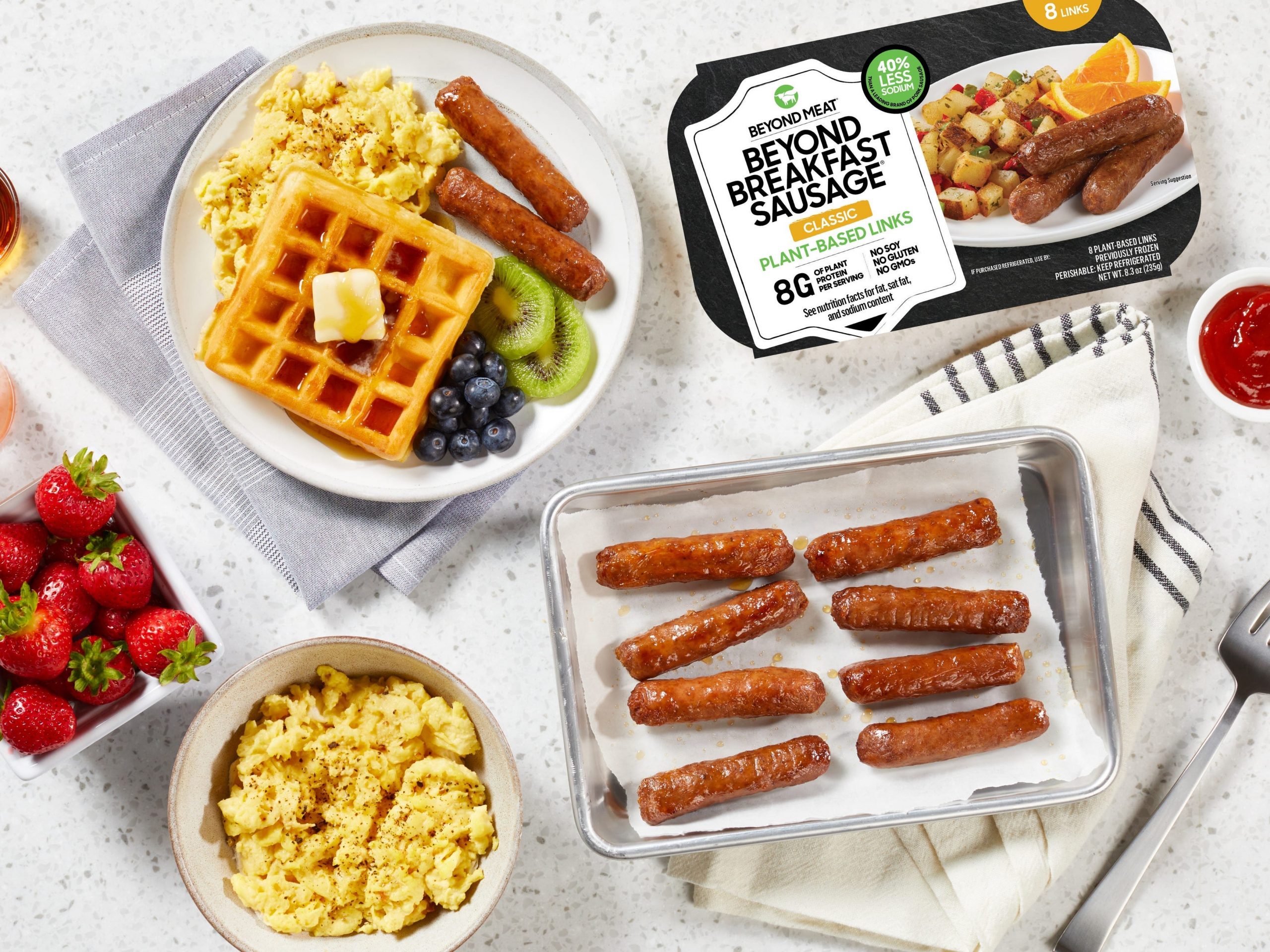
Beyond Meat
Why hello there, happy Friday.
For those of you who don’t know me, my name is Bethany Biron, and I’m happy to announce I will be joining my colleague Shoshy Ciment to help deliver Insider Retail — our weekly round-up of everything you need to know about the world of restaurants and retail — to your inboxes.
So without further ado, I present this week in the wild and wonderful world of retail. (And if you haven’t already subscribed, click here to get insights from myself and Shoshy in your inbox every Friday.)
Here’s what you need to know:
Long-floundering malls are grasping for ways to reinvent

AP
It’s no secret that malls have had a spectacularly bad year — er, make that decade — thanks to the pandemic and the ongoing retail apocalypse. Now, the CEO of one of the largest mall operators, said the only way they can survive is by diversifying their tenant base — but not before calling malls “a lazy a– business.”
Lou Conforti, the CEO of mall operator Washington Prime Group, spoke with Business Insider's Madeline Stone about the future of the American mall. By the way, 'mall' is a word he prefers not to use because of its "negative connotation." Instead, he likes to use "retail venue."
The solution? According to Conforti, it's finding innovative ways to use the space, like converting sections into fulfillment centers, socially distanced exercise classes, or drive-in movie theaters.
"This has been a very passive industry," Conforti said. "We were rent collectors versus problem solvers or curators."
Luxury goods are booming in China, but Europe is struggling to keep up

Reuters
While luxury sales may have plummeted globally during the pandemic, sales of high-end goods in China are on the rise.
According to a recent poll conducted by UBS Evidence Lab, 3 in 10 Chinese consumers spent more than usual on luxury goods between January and July, despite luxury sales falling internationally by 30% during the same period.
However, this growth "comes at a cost to sectors abroad," writes Business Insider's Grace Dean. Due to international travel restrictions, most of these purchases have happened closer to home, straining business in Europe, where a significant percentage of luxury brands are based.
Prior to the pandemic, Chinese consumers — the world's largest luxury goods buyers — typically made 75% of their high-end purchases abroad. Now, only 9% of respondents to the UBS poll said they plan to buy high-end goods elsewhere, including the US.
Frightened retail employees push back against being forced to return to corporate offices

After the fraught reopening of the L'Oreal USA office earlier this year, another major retailer is facing criticism for mandating that employees return back to the workplace.
G-III Apparel Group has been requiring employees to return to work, despite concerns over health and safety. The company licenses and in some cases owns brands such as Calvin Klein, Tommy Hilfiger, Guess, and DKNY.
Employees at the company's New York office told Shoshy Ciment they were told failure to comply would lead to retaliatory action. And consecutive "unexcused absences" from the office would lead to the equivalent of a "voluntary resignation."
"I don't really understand why [we're] sitting at our desks," one G-III employee said. "Is it just so we can look at each other?"
We want to hear more about how your company is handling its return to the office. Tell us more here.
What else is new?

- Milk Bar is now selling its beloved baked goods at Target stores around the country.
- More options for omnivores: Starbucks is testing its first fully vegan breakfast sandwich in Seattle.
- In other vegan breakfast news, Beyond Meat will start selling plant-based sausage links.
- Chipotle got rid of it's free tortillas and people are not pleased.
- Burger King is rolling out reusable containers for Whoppers and beverages.
- The former CEO of Blue Bell ice cream was charged with covering up a listeria contamination.
- Gap and Banana Republic are closing 350 stores as the retail apocalypse continues.
- A new report found that Dollar General plays its employees the least in a study of 25 major retailers.

